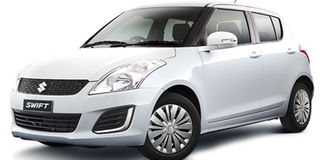Can Covid-19 be spread through cars at the garage?

What you need to know:
- The hygienist should wear disposable gloves and use approved household disinfectants, disinfectant wipes or multi surface cleaners.
Hello Paul, are we safe from Covid-19 infection when we take our cars to the garage for repairs or service? How can we avoid contamination? Millie
Hello Millie, personnel or technicians in a car garage may have a colleague infected with Covid-19 in their midst the way it is in other occupations and communities where you visit. It is also possible for a car owner who has Covid-19 to spread it to garage staff or technicians who come into contact with contaminated surfaces on the car. Organised garages should practice recommended temperature testing, hand washing, masking and safe distancing.
However, it may take one asymptomatic person to contaminate your car as well as put others at risk. The Ministry of Health states that Covid-19 is spread through droplet infection when someone sneezes or coughs and through human to human contact or human contact with contaminated surfaces.
The American National institute of Health declares that Covid-19 can stay alive and infectious on cardboard for 24 hours and up to 72 hours on plastic and stainless steel.
To mitigate or prevent the spread of Covid-19 through cross contamination the following car sanitisation protocols can be practiced alongside the other recognised standard operating procedures.
• A hygienist on the garage team should ensure that the common touch spots on any vehicle are sanitised before and after a technician works on the vehicle. The hygienist should wear disposable gloves and use approved household disinfectants, disinfectant wipes or multi surface cleaners. Avoid bleaches, hydrogen peroxide or ammonia based solutions which will discolour or damage vinyl, fabric or bezel plated surfaces.
• There are common or high touch areas on a car that need to be disinfected in case there is contamination with the Covid-19 virus. These include outside and inside door handles and latches, window switches, steering wheel, wiper and indicator stalks. Others include key fob, gear knob, parking brake lever, infotainment buttons and touch screen, ventilation system switches or buttons, dashboard, seat belt and buckle.
• Do not spray cleaners directly onto surfaces, especially electronic switches or gadgets to avoid damaging them.




